Why it is nearly impossible to understand the Modern Colloquial Arabic for the persons who know Modern Standard Arabic very well ?.
Did you ever wondered, Why it is nearly impossible to understand the Modern Colloquial Arabic for the persons who know Modern Standard Arabic very well ?.
The real reason for this is the use of vocabulary which is unknown for the listeners used by the contemporary Arabic speakers.
The modern contemporary colloquial Arabic has at least five distinct dialects spread throughout the Middle East.
These Arabic dialects are known as the Lahejat or Darija or aamiya Arabic, these Lahejat are beautiful and very often they use fusha Arabic words but in short forms, and sometimes replaces the original word sound to a different sound, such as in stead of Qaaf it is pronounced as Gaaf, or instead of Jeem it is pronounced as Geem, it is okay, up to this point no problems, but the problem arises when the modern speakers utilize a large vocabulary which is alien to the Quranic Arabic.
Most of the scholars of the fusha Arabic or the MSA are well familiar with the Quranic vocabulary i.e. the words used in the Quran, most new Arabic learners learn MSA or the Fusha Arabic because all Muslims wants to understand the Quran.
On the other way the modern standard Arabic and all the five modern contemporary Arabic dialects or the Lahjaat use a vocabulary which is not found in the Quran, they use a completely different Arabic vocabulary which is alien to the Quran!.
The five Lahjaat or colloquial arabic dialects are (1) The Levantine Lahja (2) The Egyptian Lahja (3) The Saudi Aamiya Lahja & (4) The Moroccoan and Tunisian Lahja (5) The Sudani and Emarati Lahjat. (6) And the Iraqi Lahja, which has some influence of Persian in it.
The Saudi and Egyptian and Emarati Lahjat are very similar and easy to understand, The Moroccan and Tunisian Lahjat or Darija are similar to each other and are also easy to understand mutually by the Egyptian and Saudi & Sudani people, on the other hand the Levantine Lahja or the Levantine Arabic colloquial arabic is somewhat difficult to the people who learned the MSA and Fusha Arabic.
Note that the Fusha Arabic is akin to the Arabic of the Quran.
The Levantine colloquial arabic dialect is having the most profound changes in the vocabulary and it is the most difficult to understand even by the native arabic speakers, the reason is the influence of the non muslim arabs who are the speakers of the arabic language, the non muslims who have arabic as their mother tongue are the Christians and Jews and Druze people, some are saabiin, these people are nearer to the influence of the roman, greek, and french people and hence they infiltrated some french and greek words in the arabic which they speak in their daily life.
These non muslim Arabs use non quranic vocabularies, as they do not have any sympathy with the Quran nor any attraction in the study of the quran and they very often avoid to utter the letter Q or Qaaf of the quran while speaking in Levantine arabic !, this letter Qaaf or Q is the letter of the word quran, this situation makes very strange words for the listeners who listen the arabic without listening the sound of Q during conversation, therefore it is often very difficult to understand the Levantine Arabic dialect.
All the Modern contemporary arabic dialects and even the MSA or the Modern Standard Arabic or the Fusha as it is called nowadays uses the non quranic vocabulary, the Modern arabs use 80 % words which are non Quranic words, instead of these 80 % words the existing Quranic arabic words can be used and it can make the modern arabic mutually understandable by every student of the Arabic language.
As I am being the learner of the Arabic language and as I spent 20 years in the Arabian Gulf Countries and even in the Sudan therefore I know the difference in the contemporary arabic Lahjat or the Diallects, and Therefore I was able to pin point the very reason of difficulties faced by the scholars of arabic to understand the spoken arabic of the arab world.
Therefore it is my suggestion for the people who learn the MSA and the Fusha of the Quran that they should at least learn few modern non quranic vocabularies from the arabic news papers and arabic news youtube channels so that they can understand virtually all the dialects without any difficulty,.
These few non quranic arabic vocabulary words are even not more, they are in the range of few hundred words only, and it is very easy for the learner of the quranic arabic language learner to learn them within a week or two.
The enemies of Islam and Muslims are busy in fighting with the gullible Muslims from every front and they are utilizing every weapon which is in their disposal, the distortion of the arabic language so that to keep the muslims away from the Quran !, it is one of those weapons, Arabic grammar is so tight that they could not infiltrate in it, therefore they tried to distort the arabic words by substituting some sounds and omitting some sounds from some words, & by using non quranic vocabulary.
They are successful in making the MSA or the Fusha arabic language a dead language, because today in the arabic world nobody actually speaks the Fusha, all arabs speaks the Aamiya or the Darija or the Lehja of their areas.
Alhamdulillah as I got a very long time to spent in the Arab Gulf countries therefore I tried to learn all those Lahjat and dialects and today by the grace of the God I can understand all the Lahjat and MSA and the Language of the Quran.
colloquial arabic
-------------------------
جو لوگ جدید معیاری عربی اچھی طرح جانتے ہیں ان کے لیے جدید بول چال کی عربی کو سمجھنا کیوں تقریباً ناممکن ہے؟
کیا آپ نے کبھی سوچا ہے کہ جو لوگ جدید معیاری عربی اچھی طرح جانتے ہیں ان کے لیے جدید بول چال کی عربی کو سمجھنا کیوں تقریباً ناممکن ہے؟
اس کی اصل وجہ الفاظ کا استعمال ہے جو کہ سننے والوں کے لیے نا معلوم ہے جو عصری عربی بولنے والے استعمال کرتے ہیں۔
جدید معاصر بول چال کی عربی میں کم از کم پانچ الگ الگ بولیاں ہیں جو پورے مشرق وسطی میں پھیلی ہوئی ہیں۔
یہ عربی لہجوں کو لہجات یا دریجہ یا عامہ عربی کے نام سے جانا جاتا ہے، یہ لہجات خوبصورت ہیں اور اکثر ان میں فصحى عربی الفاظ استعمال ہوتے ہیں لیکن مختصر شکلوں میں، اور بعض اوقات اصل لفظ کی آواز کو مختلف آواز میں بدل دیتے ہیں، جیسے کہ قاف کی جگہ۔ گاف کے طور پر تلفظ کیا جاتا ہے، یا Jeem کے بجائے Geem کے طور پر تلفظ کیا جاتا ہے، یہ ٹھیک ہے، اس مقام تک کوئی مسئلہ نہیں ہے، لیکن مسئلہ اس وقت پیدا ہوتا ہے جب جدید بولنے والے ایک بڑی ذخیرہ الفاظ کو استعمال کرتے ہیں جو قرآنی عربی کے لئے اجنبی ہے.
الفصحى عربی یا ایم ایس اے کے اکثر علماء قرآنی الفاظ سے اچھی طرح واقف ہیں یعنی قرآن میں استعمال ہونے والے الفاظ، زیادہ تر نئے عربی سیکھنے والے ایم ایس اے یا فصحى عربی سیکھتے ہیں کیونکہ تمام مسلمان قرآن کو سمجھنا چاہتے ہیں۔
دوسری طرف جدید معیاری عربی اور پانچوں جدید عصری عربی لہجوں یا لہجات میں ایسی لغت استعمال ہوتی ہے جو قرآن میں نہیں ملتی، وہ بالکل مختلف عربی الفاظ استعمال کرتے ہیں جو قرآن کے لیے اجنبی ہے!
پانچ لجہات یا بول چال کی عربی بولیاں ہیں (1) لیونٹین لہجہ (2) مصری لہجہ (3) سعودی عامیہ لہجہ اور (4) مراکش اور تیونسی لہجہ (5) سوڈانی اور اماراتی لہجہ۔ (6) اور عراقی لہجہ جس میں فارسی کا کچھ اثر ہے۔
سعودی اور مصری اور اماراتی لحجات بہت ملتے جلتے ہیں اور سمجھنے میں آسان ہیں، مراکشی اور تیونسی لہجات یا دریجہ ایک دوسرے سے ملتے جلتے ہیں اور مصری اور سعودی اور سوڈانی لوگوں کے لیے باہمی طور پر سمجھنا بھی آسان ہے، دوسری طرف لیونٹین لہجہ یا لیونٹین عربی بول چال کی عربی ان لوگوں کے لیے کچھ مشکل ہے جنہوں نے MSA اور Fusha عربی سیکھی ہے۔ یاد رکھیں کہ فصحى عربی قرآن کی عربی کے مشابہ ہے۔
لیونٹائن بول چال کی عربی بولی کے الفاظ میں سب سے گہری تبدیلیاں آرہی ہیں اور اسے مقامی عربی بولنے والوں کے لیے بھی سمجھنا سب سے مشکل ہے، اس کی وجہ غیر مسلم عربوں کا اثر ہے جو عربی زبان بولنے والے ہیں۔ جن غیر مسلمانوں کی مادری زبان عربی ہے وہ عیسائی اور یہودی اور ڈروز کے لوگ ہیں، کچھ صابین ہیں، یہ لوگ رومی، یونانی اور فرانسیسی لوگوں کے اثر سے زیادہ قریب ہیں اور اسی لیے انھوں نے عربی میں کچھ فرانسیسی اور یونانی الفاظ گھس لیے ہیں وہ اپنی روزمرہ کی زندگی میں بولتے ہیں۔
یہ غیر مسلم عرب غیر قرآنی الفاظ استعمال کرتے ہیں، کیونکہ ان کو قرآن سے کوئی ہمدردی نہیں ہے اور نہ ہی قرآن کے مطالعہ میں کوئی کشش ہے اور وہ اکثر لیونٹین عربی میں بات کرتے ہوئے قرآن کے حرف ق یا ق کو بولنے سے گریز کرتے ہیں! یہ حرف قاف یا ق لفظ قرآن کا حرف ہے، یہ صورت حال ان سامعین کے لیے بہت عجیب و غریب الفاظ بناتی ہے جو گفتگو کے دوران ق کی آواز سنے بغیر عربی سنتے ہیں، اس لیے لیونٹین عربی بولی کو سمجھنا اکثر مشکل ہوتا ہے۔
تمام جدید معاصر عربی بولیاں اور یہاں تک کہ ایم ایس اے یا جدید معیاری عربی یا فصحى جسے آج کل کہا جاتا ہے غیر قرآنی الفاظ استعمال کرتے ہیں، جدید عرب 80 فیصد الفاظ استعمال کرتے ہیں جو غیر قرآنی الفاظ ہیں، ان 80 فیصد الفاظ کی بجائے موجودہ الفاظ قرآنی عربی الفاظ استعمال کیے جا سکتے ہیں اور یہ عربی زبان کے ہر طالب علم کے لیے جدید عربی کو باہمی طور پر قابل فہم بنا سکتا ہے۔
چونکہ میں عربی زبان کا سیکھنے والا ہوں اور جیسا کہ میں نے عرب خلیجی ممالک اور یہاں تک کہ سوڈان میں 20 سال گزارے ہیں، اس لیے میں عصری عربی لہجات یا لہجوں میں فرق جانتا ہوں، اور اسی لیے میں اس قابل ہوا عرب دنیا میں بولی جانے والی عربی کو سمجھنے میں عربی کے علماء کو درپیش مشکلات کی وجہ۔
اس لیے جو لوگ قرآن کا MSA اور Fusha سیکھتے ہیں ان کے لیے میری تجویز ہے کہ وہ کم از کم عربی نیوز پیپرز اور عربی نیوز یوٹیوب چینلز سے کچھ جدید غیر قرآنی الفاظ ضرور سیکھیں تاکہ وہ بغیر کسی زبان کے تقریباً تمام بولیوں کو سمجھ سکیں۔ مشکل،.
یہ چند غیر قرآنی عربی الفاظ اس سے بھی زیادہ قابل توجہ ہیں، یہ صرف چند سو الفاظ کی حد میں ہیں، اور قرآنی عربی زبان سیکھنے والے کے لیے ایک یا دو ہفتے کے اندر ان کو سیکھنا بہت آسان ہے۔
اسلام اور مسلمانوں کے دشمن ہر محاذ سے ناقص مسلمانوں سے جنگ میں مصروف ہیں اور وہ ہر اس ہتھیار کو استعمال کر رہے ہیں جو ان کے ہاتھ میں ہے، عربی زبان کی تحریف اس لیے کہ مسلمانوں کو اس قرآن سے دور رکھنا ان ہتھیاروں میں سے ایک ہے۔ عربی گرامر اس قدر سخت ہے کہ اس میں دخل نہیں دے سکتے تھے، اس لیے انھوں نے عربی الفاظ کو کچھ آوازوں کی جگہ اور کچھ الفاظ سے کچھ آوازوں کو چھوڑ کر بگاڑ دینے کی کوشش کی, و استعمال الفاظ غير معروفة و غير القرآنية ۔
وہ ایم ایس اے یا فصحى عربی زبان کو مردہ زبان بنانے میں کامیاب ہیں، کیونکہ آج عربی دنیا میں کوئی بھی فصحى نہیں بولتا، تمام عرب اپنے علاقوں کی عامیہ یا دریجہ یا لہجہ بولتے ہیں۔
الحمدللہ چونکہ مجھے عرب خلیجی ممالک میں گزارنے کے لیے کافی وقت ملا اس لیے میں نے ان تمام لجہات اور لہجوں کو سیکھنے کی کوشش کی اور آج خدا کے فضل سے میں تمام لجہات اور ایم ایس اے اور قرآن کی زبان کو سمجھ سکتا ہوں۔
إن أعدائنا يسعون باستمرار إلى تدهور مجتمعنا الإسلامي من خلال زرع النكات القذرة والأفكار القذرة في شبابنا المسلم، هاتان الصورتان ليست سوى لمحة صغيرة من الدليل على ذلك.كل من يعرف اللغة العربية جيدا يعرف معنى هذه الكلمات



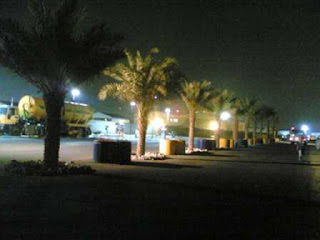













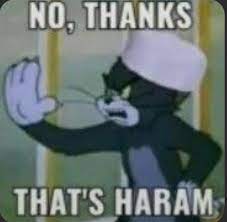

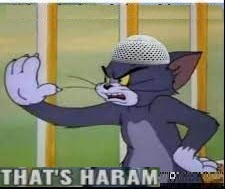




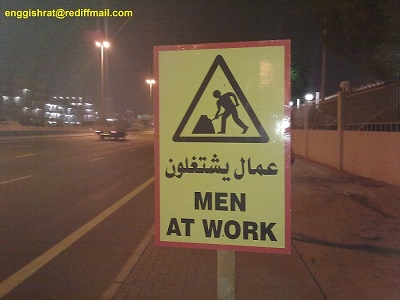











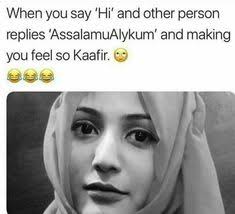




No comments:
Post a Comment